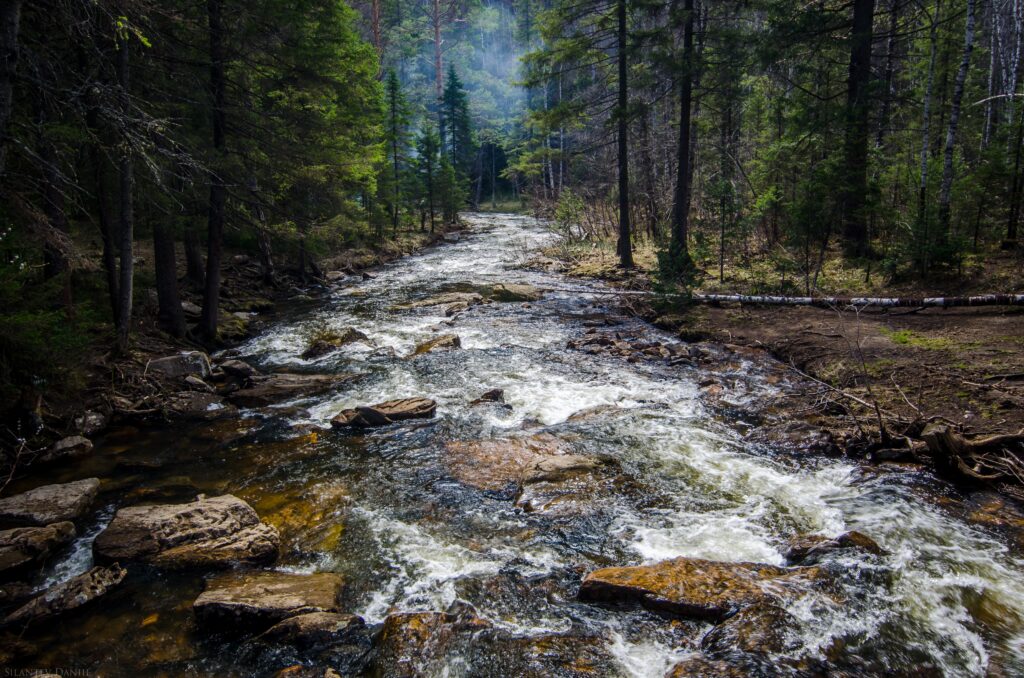
At the church where I serve we’ve been preaching a sermon series on Christian basics, using Rowan William’s book Being Christian as a guide. I recently preached a sermon on baptism where I discussed the sacrament of initiation in terms of boundary crossing and naming.
Sermon in a nutshell: To pass through the waters of baptism is to pass from one realm to another, from one dominion, the dominion of darkness, into another dominion, the kingdom of the beloved Son (Col. 1:13). But to be baptized is also to be immersed into a new name and identity, the triune name of Father, Son, and Holy Spirit, a name which summons the baptized to mission. Jesus’ baptism illustrates both of these dynamics. In his baptism he crosses the boundary line of the Jordan because he is the new Joshua coming out of the wilderness to enter the land of promise. But he is also named Beloved Son, and that naming is not incidental. The naming is anointing, an anointing which is not just calling but also empowerment for the mission ahead. For Rowan Williams this means that the baptized are those who are joined to the anointed one, and are therefore anointed into the priestly, prophetic, and kingly offices of the Beloved Son as well. Those who are immersed into the name of Father, Son, and Spirit, are named and then summoned, told to go and make disciples, and empower to do so by the Spirit.
The week after I preached that sermon a re-encountered a passage from a novel that beautifully encapsulates both dynamics of baptism as boundary crossing and baptism as naming. I’ve been listening A Wizard of Earthsea on Audible, performed by the wonderful Rob Inglis whose performance of The Lord of the Rings is simply stellar. I’ve read Le Guin’s enchanting book before, but I wish I would have remembered this lovely passage where the young Sparrowhawk is initiated into a new life by his master Ogion with a water rite and with a naming ritual, called “the ceremony of Passage”:
“On the day the boy was thirteen years old, a day in the early splendour of autumn while still the bright leaves are on the trees, Ogion returned to the village from his rovings over Gont Mountain, and the ceremony of Passage was held. The witch took from the boy his name Duny, the name his mother had given him as a baby. Nameless and naked he walked into the cold springs of the Ar where it rises among rocks under the high cliffs. As he entered the water clouds crossed the sun’s face and great shadows slid and mingled over the water of the pool about him. He crossed to the far bank, shuddering with cold but walking slow and erect as he should through that icy, living water. As he came to the bank Ogion, waiting, reached out his hand and clasping the boy’s arm whispered to him his true name: Ged.” A Wizard of Earthsea
Le Guin is not a Christian, and I can’t say with certainty that she has Christian baptism in mind with this passage, but she is certainly thinking in terms of initiation rites, and the potent imagery is alive with Christian implications. Duny goes in the water and Ged emerges. He passes through watery chaos and comes out the other side, stepping into a new world, stepping into a new identity.
The passage also speaks to another dynamic of Christian baptism. Baptism as clothing. Many of the earliest Christians also went into the baptismal waters naked, and when they emerged, they were clothed in white. Newly named, newly clothed, citizens of a new world. Baptism then is not just boundary crossing, not just naming, but investiture, putting on Christ as clothing, being clothed with power from on high.

Comments are closed.
Mentions